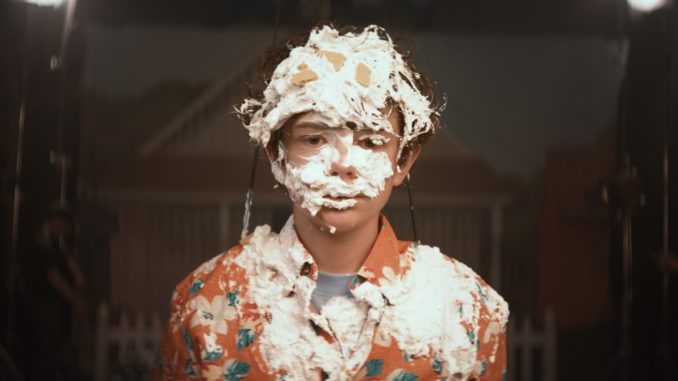
TMN film critic Gordon McPherson gives “Honey Boy” five out of five chickens.
An emotional roller coaster from start to finish, director Alma Har’el’s “Honey Boy” is a testament to the power of empathy through storytelling.
The film is based on the life of controversial actor Shia Labeouf and his toxic relationship with his father. After his third drunken altercation in 2017, Labeouf went to court-ordered rehab and began writing the film’s script.
“Honey Boy” is an achingly personal film for Labeouf, and that passion bleeds off the screen to create an uncompromising, bleak, yet ultimately life-affirming experience.
In its hectic opening moments, “Honey Boy” sees Otis Lort — a stand in for Labeouf, portrayed by Lucas Hedges — losing control of himself. His life spins out of control, and the sequence ends with a shocking, vividly realized car crash. The film immediately cuts to Otis in a rehab facility. A doctor identifies Otis’ post-traumatic stress and encourages him to reflect on his past.
The rest of the film unfolds in two separate yet interconnected timelines, following young Otis and present day Otis. As he undergoes exposure therapy and looks back on his childhood, Har’el turns back the clock to Otis’ upbringing as a child actor. Young Otis — portrayed by Noah Jupe — lives with his father James Lort, strikingly portrayed by Labeouf himself. An alcoholic, convicted felon and former rodeo clown, James also becomes Otis’ personal, paid chaperone.
The film throws viewers into Otis’ life with little room to breathe. As Otis remembers the sources of his life-altering trauma, we experience those memories with him. Har’el employs a tactile, grounded style that makes viewers feel uncomfortably close to the characters.
Viewers also experience moments of joy and grace in several cerebral sequences that illustrate Otis’ recovery and optimism for the future.
Sure, this all sounds a bit too heavy for the average Truman State University student. Then again, “Honey Boy” was never intended to be an entertaining film. This is a prime example of art as therapy, of the power of art to convey intense feelings. Anybody wanting throwaway fluff can go watch “Fantasy Island” instead.
Hedges and Jupe give miraculous performances, effectively illustrating Otis’ evolution from a pure child to an aggressive young man and, finally, a calmed soul. They are completely authentic in every scene, especially Jupe, who conveys Otis’ fractured youth with heart-rending believability.
Standing tall above them, however, is Labeouf. No matter how one thinks of him offscreen, his performance in “Honey Boy” is downright incredible. Veering from sentimentality to cruel outbursts in the blink of an eye, Labeouf fearlessly portrays his father. He transforms himself from a lackluster actor in Michael Bay’s “Transformers” films to a cinematic force of nature.
“Honey Boy” presents its central father-son relationship in heartbreaking detail, refusing to paint anyone with broad, moralizing strokes.
Indeed, while the film never excuses James’ cruelty and abuse, it ultimately depicts him as a wounded man. Somewhere in his heart, he wants the best for his son, but is unable to truly connect with him.
The film’s reach therefore extends beyond Labeouf’s own life to confront the generational effects of addiction and trauma, leaving a bittersweet yet hopeful taste by the end credits.
Admittedly, “Honey Boy” omits some pertinent details about both Labeouf and his father, especially surrounding Labeouf’s life in between the two timelines. Fortunately, their omission doesn’t affect the film’s impact.
By its conclusion, viewers will likely feel both battered and rejuvenated — having had a near-unfiltered look into Labeouf’s past that doesn’t justify his later actions, but that reveals life’s baffling complexity.
